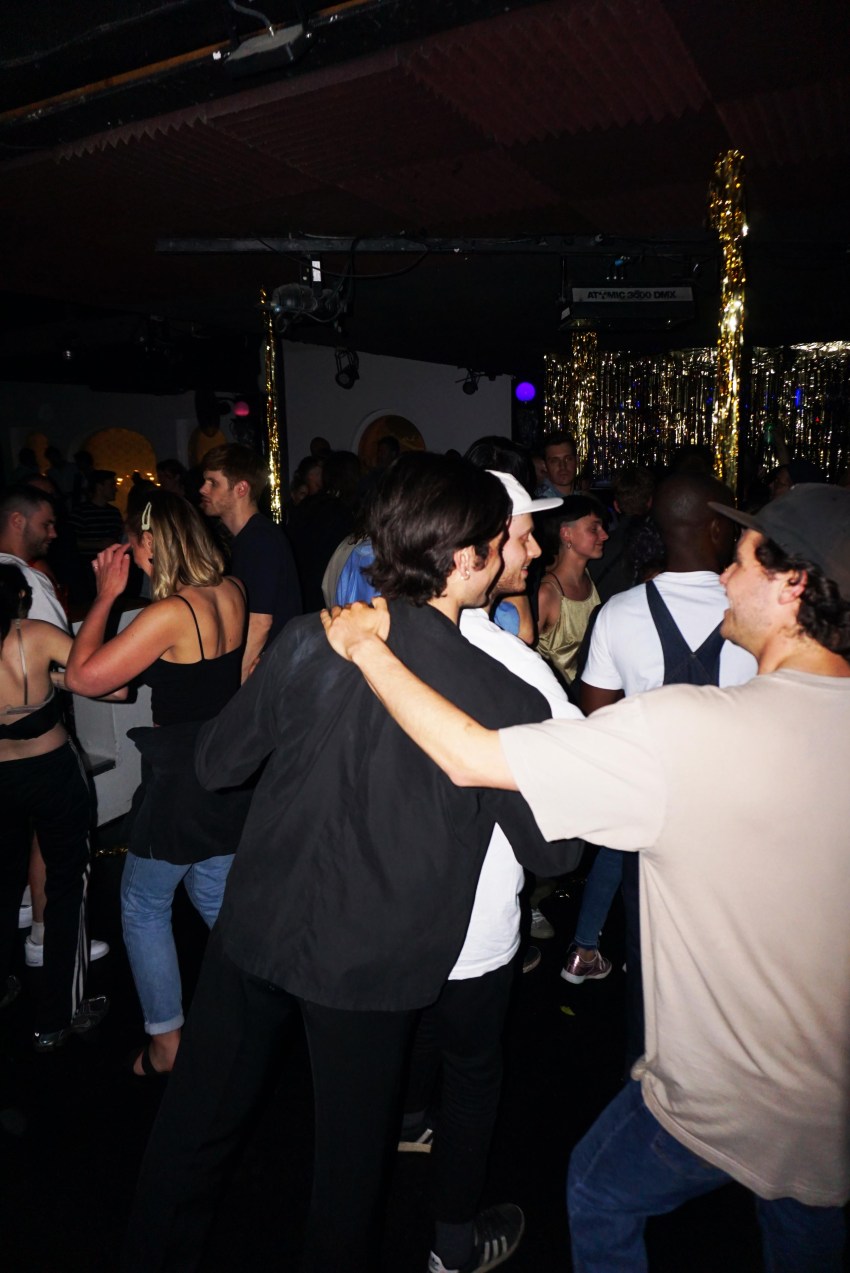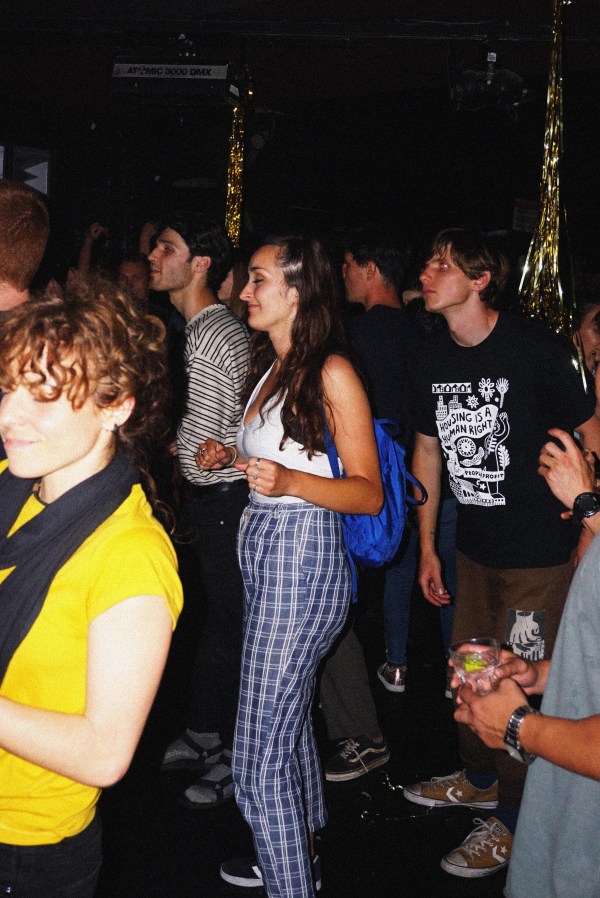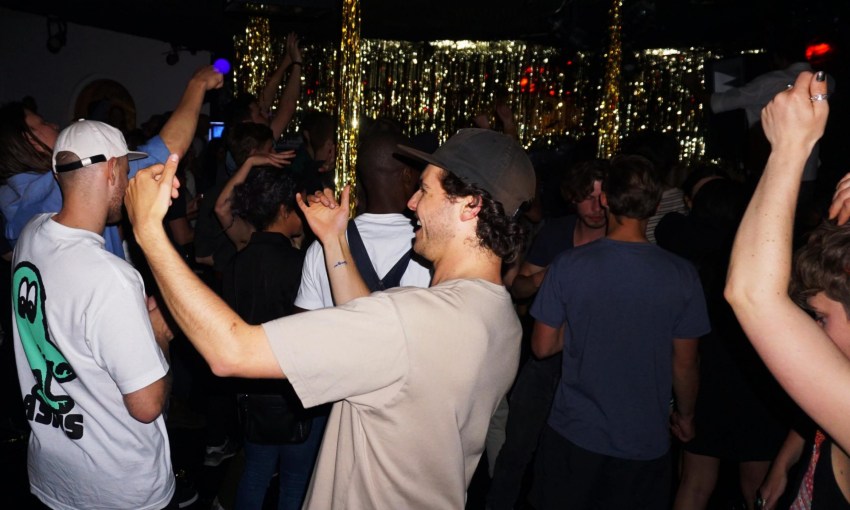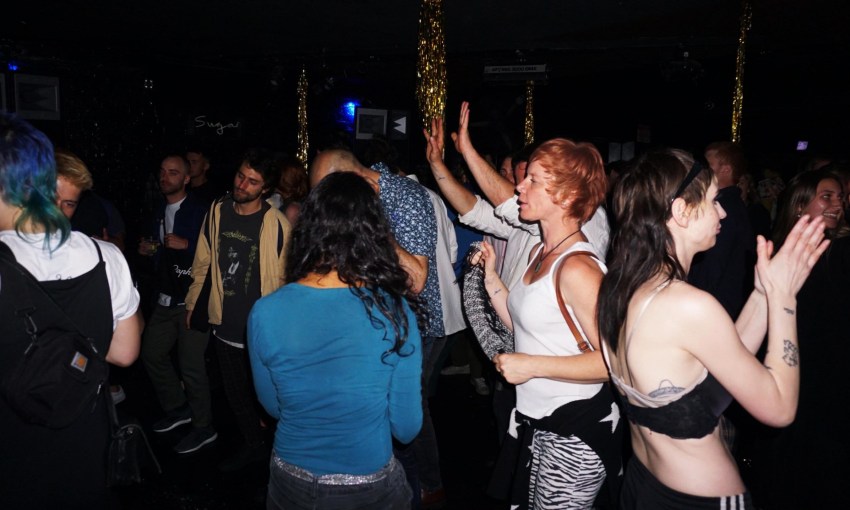Local internet music station Groundfloor Radio has launched an online petition arguing live music venues and nightclubs are still “inoperable” due to COVID restrictions and the State Government has prioritised sports over the city's late-night economy.
Dance battle: Groundfloor Radio clocks 6600 signatures to bring dancing back
SPECIAL REPORT: COVID-19 ADELAIDE
Local deejay and party proprietor Dan Gill, of Groundfloor Radio, helped kickstart the ‘Re-instate dancing in South Australian music venues‘ campaign last week, aiming to highlight the growing discontent among Adelaide’s late-night community.
“Bring Dancing Back”
Sign the petition. Read the instructions on how to write to your local MP.
Click here for more info.
“We feel that we’re not remotely a priority in the eyes of the State Government,” Dan says.
“The petition came out a lot of conversations that we’ve had with people in the industry, but also people that have nothing to do with the industry, about what the hell is going on and is it fair and is it warranted?”
The petition argues is SA is the only state (except Western Australia, which is in the throes of its own mini-lockdown) where dancing and drinking in venues is only allowed under such strict circumstances: one session per day, capped at 200 people.
“We still experience many of the same restrictions that inhibit the performance and viability of many industries, despite the ongoing streak of zero community transmission since November 28,” the petition says.
“In a sanction present in South Australia only, venues may introduce dancing into their venues by closing to the public, and hosting private, ticketed events. These are limited to 1 session per night, at the total of the club’s reduced capacity.”
The petition goes on to argue the “1 session is simply not enough business”, is “inoperable”, and the “mandatory QR code scanning has been deemed sufficient for contact tracing”.
Groundfloor Radio has hosted parties every Friday night at Rundle Street nightclub Sugar for years, but Dan says he’s hearing “un-enthusiastic” patrons saying they don’t plan on returning until they can dance. He’s also witnessed a loss in patronage and deejays turning away gigs due to feeling unfulfilled in their work.
Sugar co-owner Driller Jet Armstrong says he’s been trying since July to get his COVID management plan approved by SA Health to allow drinking and dancing, but says he’s had no luck.
“It’s just so frustrating,” Driller says, “and we’re definitely losing money by not having dancing.”
“There’s competition as well – people are having parties in parks where everyone can go and dance to their heart’s content. It’s enabling that side of things and disabling us and actually creating an anchor around our neck.”


Remember this?
In July last year, the State Government announced nightclubs and standing hospitality venues would be able to trade after a COVID-19-induced closure, but almost a week and a half after this news broke, it was revealed SA Health would not approve any COVID management plans allowing drinking and dancing together.
Months later, in December, venue owners were told the seemingly good news that “South Australia has recently seen significant positive progress with regards to the COVID-19 pandemic”, in a circulated email sent by SA Health and seen by CityMag. And as a result of the good news, the department would “now resume processing COVID Management Plan applications for night clubs”.
There was a catch – drinking and dancing would only be allowed once a day during a ticketed session capped at 200 people.
A spokesperson for SA Health told CityMag since December last year, eight nightclubs have submitted their COVID management plans for drinking and consuming alcohol simultaneously, and two have been approved.
“Four are currently still being reviewed and assessed,” they said via email.
“We still cannot become complacent as there is always the risk of reintroduction of the virus into the state. Restrictions are currently in place for different Public Activities dependant on the level [of] risk of potential transmission.”
– Zander Hunt
General manager of the Australian Hotels Association’s SA branch, Ian Horne, tells CityMag not only does he not know of a single SA venue that has had their COVID management plan approved, but even if a venue got the go-ahead to operate with the one session per evening, it may not be viable.
“The private function mechanism is a maximum of 200,” Ian explains, “so when you’ve got some of the bigger live music venues, or nightclubs, they may have capacities of 1800, or 1000, or 80… it puts a lot of those businesses in peril.
“If we can have 40,000 people watching an AFL match. If we can have thousands of people shoulder to shoulder at the tennis – it’s proving increasingly difficult for [venue] operators to understand, why them?”
Zander Hunt co-owns Ancient World, a venue located off Hindley Street, and says his business is similarly hurting due to the dancing ban. Ancient World has applied for a drinking and dancing COVID management plan, and are awaiting feedback from SA Health.
“The very concept of our business is affected by the dancing ban and changes what we’re able to offer, as well as the number and type of performers we’re able to book,” Zander says.
“After so many months of this, the police regularly visit but are never helpful. They offer threats of crippling fines on top of the losses we already incur from obeying the rules.”
Another part of the ‘Bring Dancing Back’ campaign encourages individuals writing to their local members of parliament and asking them to consider changing the legislation, or at least listening to those in the industry about how to make restrictions workable.
In a sign of the depth of frustration the live music and nightclub community has fell to, the campaign has even resorted to vying for politicians’ attention by commenting “bring dancing back” on Premier Steven Marshall’s Instagram posts.
View this post on Instagram
“I’m sure Steven Marshall probably hates the comments, too,” Dan says.
Dan adds if they do not receive a response from the MPs they’ve sent letters to or the offices they’ve called, they will protest on the steps of Parliament.
“We would like things to be resolved sooner than that, and we would like the government to acknowledge our industry and show a consideration for our industry’s trajectory,” he says.
“But obviously, it’s something that we have considered.”






